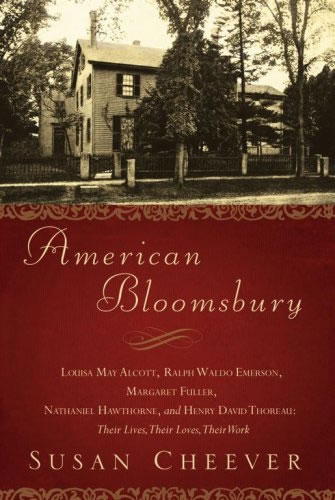American Bloomsbury
A deeply silly book, written by a very talented and engaging writer. I loved her Notes Found In a Bottle, and this volume sets out to tell the intertwined stories of five important writers whose lives intersected in 19th century Concord.
It was a fascinating time and these are fascinating people, but Cheever is so enthralled by their various loves that she can spare little attention for their ideas. These people still fascinate us because they were so deeply engaged with ideas; they lived in the mind more than the flesh, though their ideas were always firmly rooted in the nobility of labor, the fruitful soil, and the transience of this world. It is interesting to know that they likely fell in and out of bed with each other from time to time, but to ignore the ideas and the work for the love story is, I think, to miss the point.
Perhaps this is not the book Cheever wanted to write. Cheever's treatment of Thoreau, Hawthorne, and especially of Emerson is superficial, but she seems a great deal more interested in Louisa May Alcott, in Lydian Emerson, and (to a lesser degree) in Sophia Peabody. Perhaps their biography turned out to be impossible to recover or impractical to market. The absence of ideas makes more sense if the book was meant to be centered on the practical, retiring Lydian and the invalid Sophia, especially when contrasted with Louisa May Alcott.
When Cheever does get around to discussing ideas, her focus is bizarre. She revels in deploring Bronson Alcott's willingness to accept other people's money and Emerson's reliance on his wife's subservience, but who relies on Mr. Alcott for ideas about earning a living, or on Emerson for feminism? She observes that Thoreau's influence lay far in the future, that to the Concordians he was at best a minor writer who was useful to have around the garden, yet she engages Walden in more detail than any book of Emerson's. Her condemnation of the Transcendentalist for their intolerance of slavery is bizarre, as she seems to imagine that the war was caused by a few ideological hotheads and that, left in more politic and tolerant hands, a continuing compromise could have been achieved or that New England in 1860 would have been happy to support slavery indefinitely. Had New England been so compliant some four score years earlier, there would have been no revolution and American literature would have been, at most, a provincial fashion.
